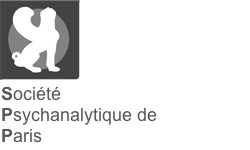|
Type de document :
|
Article : texte imprimé
|
|
Titre :
|
"Kathartisches Erinnern" - Zum Werk von Imre Kertész (1997)
|
|
Auteurs :
|
/
Annegret MAHLER BUNGERS
|
|
Dans :
|
Zeitschrift für Psychoanalytische Theorie und Praxis (vol. 12, n° 3, 1997)
|
|
Article en page(s) :
|
pp. 257-274
|
|
Langues:
|
Allemand
|
|
Mots-clés :
|
Catharsis
;
Shoah
;
Psychanalyse et littérature
;
Holocauste
;
Traumatisme
;
KERTÉSZ, Imre
;
KERTÉSZ, Imre. - L'Holocauste comme culture
|
|
Résumé :
|
While the topic of the "unintelligibility of the Holocaust" serves as a defence against the integration of this dramatic historical trauma into our representation of humanity and of the world, Kertész succeeds in making literature into an "emotional memory" of mankind through the "aesthetics of disturbance". His novels Kaddisch für ein nicht geborenes kind and Roman eines Schicksallosen both rely on the basis of projective identification, which evokes unbearable affects in the reader and makes him emotionally go through the traumatic experience of Auschwitz during the intersubjective event between text and reader. Culture is seen with Cassirer as communication and with Winnicott as an "intermediate area" in which the work serves as a medium, a "metaphor" (bridge) - also in a transgenerational sense - to lead the trauma to a process of remembering and working through. The work affects the reader - so far as he or she is willing to expose him or herself to this literature - as an interpretation in a modern psychoanalytic sense, that is as a cathartic self - and world-knowledge in the realtion between author, text and reader in which the projective mechanisms which enabled the Holocaust can be dissolved. This process is illustrated by a sequence of a dream.
|




